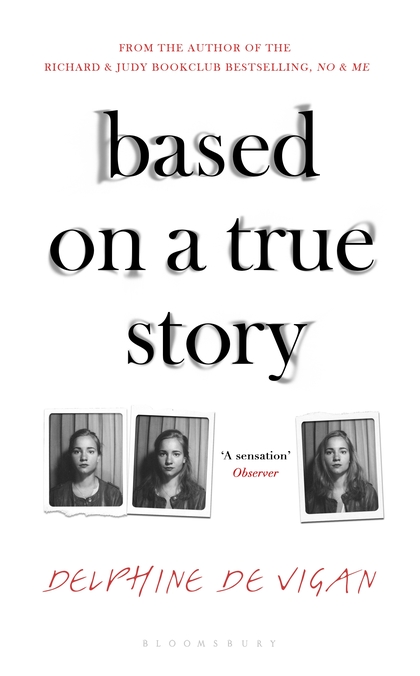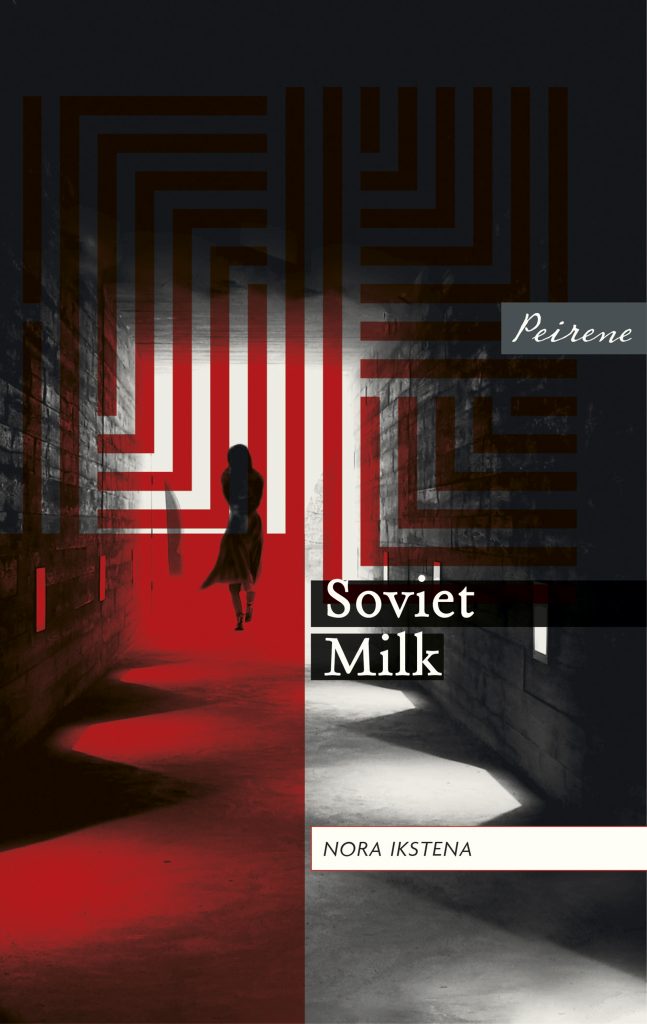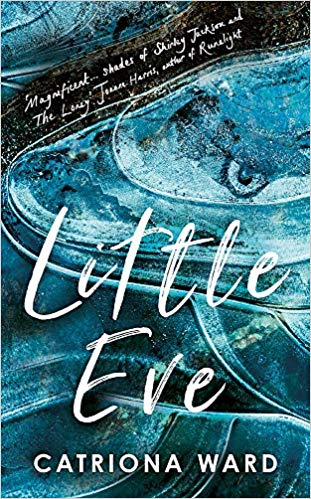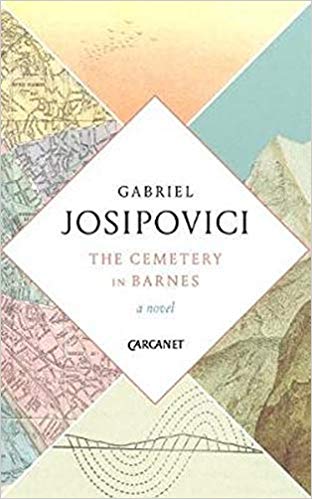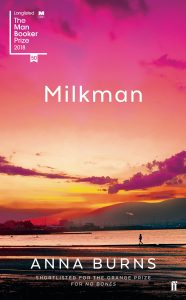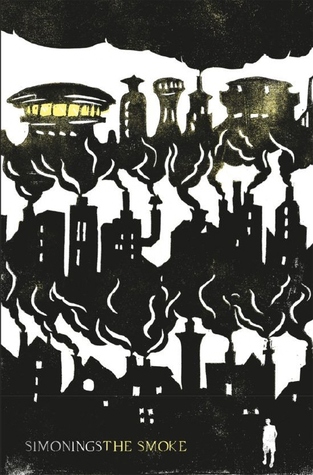My relationship with the work of Ian McEwan has been going on for almost the whole of my adult reading life. I first encountered him in The Cement Garden, which my mother brought home from the library in the early eighties. She read it and pronounced it ‘weird’. I read it and found it weird, too, unlike anything I’d read before (I was fourteen) and compelling in its breaking of taboos, its willingness – one might say its eagerness – to shock. More than that, The Cement Garden seemed somehow to chime with the world that was unfolding around me: my parents were splitting up, I was discovering unpalatable truths about people and relationships and the wider world of politics and social division. I can’t swear to this – it’s too long ago – but The Cement Garden might have been the first adult novel I read by a young, contemporary writer that dealt explicitly with the fractured and aberrant nature of modern Britain. McEwan seemed risky to me, and important. I formed an attachment to his work on the spot, even as it unsettled me and probably because of that.
I read The Comfort of Strangers a year or two later, First Love, Last Rites at some point between the two. I found both of these – Strangers especially – equally risky, equally compelling. The Child in Time was the first of McEwan’s novels I remember buying at the time it was published. I was by then an undergraduate and exactly the right age for reading him. I was gripped by The Innocent, even more so by Black Dogs, which in my memory contains some of McEwan’s best writing. Enduring Love is the book I still believe to be his masterpiece: intense, engaged, dense and ambiguous. Out of step with many, I also enjoyed his mordant and clever Booker winner, Amsterdam.
Then came Atonement, the novel that made McEwan a household name but that marked, at least for me, the beginning of an inexorable downward slide into bland respectability. Compared with the idiosyncratic, vaguely disreputable books that comprise the first half of his oeuvre, these more recent novels seem smug and self-satisfied. They are novels that attempt to grapple with universal themes, whilst appearing to lack the personal engagement and imagination to convey much of anything beyond the superficial.
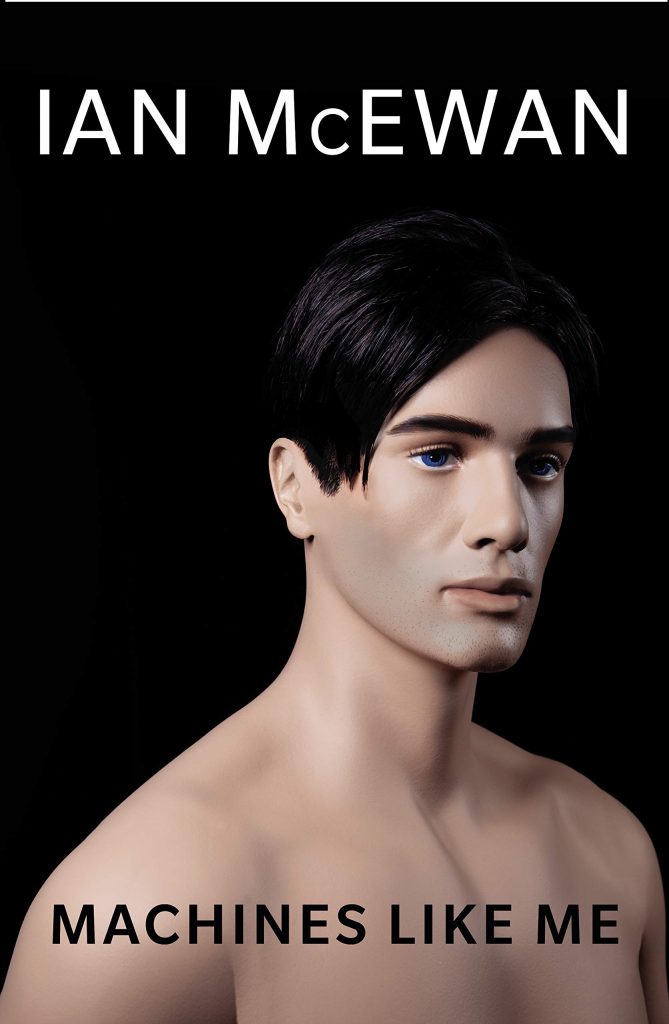
I have found this development sad, and shocking. Probably the seeds of doom were there all along – they usually are – and if I were to go back and read the early works now I would find them scattered all over the place. I don’t feel like doing it – I don’t have time to waste on a cause that now seems beyond redemption. Still, from the moment Machines Like Me was announced I knew my curiosity was bound to overcome my reticence. Ian McEwan, trying his hand at science fiction? Not that anyone, least of all McEwan, was going to call it that. In an interview for the Guardian, he is clearly at pains to emphasise that he has something more serious in mind:
“There could be an opening of a mental space for novelists to explore this future, not in terms of travelling at 10 times the speed of light in anti-gravity boots, but in actually looking at the human dilemmas of being close up to something that you know to be artificial but which thinks like you. If a machine seems like a human or you can’t tell the difference, then you’d jolly well better start thinking about whether it has responsibilities and rights and all the rest.”
I’m sure I’m not alone in finding it ironic that a writer who purportedly has no interest in science fiction is able to come up with such a neat and tidy description of what science fiction is and sets out to do. But if it’s dull and annoying to hear these misconceptions about SF trotted out yet again, it is equally tedious to witness another windy bout of performative outrage from the science fiction community, most especially when it is obvious that few, if any of those doing the yelling have actually read the text they’re so pissed off about.
Of course it is possible to respond to an interview in and of itself, which is what the critic Sarah Ditum did, again in the Guardian, a couple of days later. ‘SF is not a respectable genre’, Ditum states. ‘Its origins are brash and cheap, its richness often married to its slightly disreputable status.’ She goes on to give a neat and informative summary of science fiction’s hotly contested origin story, whilst at the same time opening up to scrutiny the misinformation about science fiction that continues to be disseminated throughout the wider literary world. Quoting the 1976 essay by Ursula Le Guin ‘Science Fiction and Mrs Brown’, Ditum reveals how science fiction is in fact not so much a category of literature as a mode of expression: “a crazy, protean, left-handed monkey wrench, which can be put to any use the craftsman has in mind”.
Ditum’s essay is refreshing and insightful. What it hints at also is the fact that the literary/SF divide is and always has been a war of two armies. For all those writers such as McEwan who refuse to touch the monkey wrench for fear it might be contaminated with genre radioactivity, there are an equal number of writers behind the SF barricades who continue to insist that science fiction is their monkey wrench, that no one else should be allowed to use it unless they want to be exposed to ridicule for using it wrong, and that they should especially not be allowed to use it unless they can tell you where the metal it is made from was mined, write a three-page essay on the smelting process and cite bibliographical sources attesting the canonical uses of monkey wrenches from Golden Age times.
To avoid torturing this analogy any further, we could just call this pointless posturing what it is: the science-fictional equivalent of a comic-book farmer, bellowing at the clueless townies to get off his land.
At this point I would like to posit my own counterfactual, a world in which Ian McEwan, when asked that inevitable question about science fiction, had the nous and the background knowledge to answer simply: ‘Yes, you could definitely say that Machines Like Me is a science fiction novel. At the very least, it makes use of science fictional materials. But then, this is nothing new for me. One of my early stories was published in a science fiction magazine. Several of my other novels make use of speculative conceits. If you look at my TV play, Solid Geometry, or read the story ‘Dead as They Come’ from In Between the Sheets, you will see I have been interested in these kinds of Ballardian themes for a long time. Science fiction is simply one of the many useful tools at a writer’s disposal’.
Such a response would not only have been more truthful, it would have been more interesting for everyone involved. Rather than simply reiterating familiar arguments, we could now be discussing how science fiction has impacted and influenced the contemporary novel. Faced with McEwan’s theoretical Damascene revelation, the science fiction commentariat (such that it is, these days) might have felt obliged to stop snarking from the sidelines and actually read his novel before damning it to hell.
*
The protagonist and narrator of Machines Like Me is Charlie Friend, a thirty-three-year-old one-time tax fraudster whose brush with the law has left him determined to eschew conventional employment in favour of earning a precarious living from playing the stock market. When a family inheritance leaves him temporarily solvent, he indulges his inner nerd and blows the lot on Adam, one of twenty-five new-generation AIs, designed to look, behave and learn like a human being. As well as fulfilling his lifelong curiosity about future developments in robotics, Charlie hopes that his acquisition of Adam will serve to foster his relationship with his upstairs neighbour Miranda, a postgraduate student whom, after months of supposedly platonic friendship, Charlie has suddenly decided he is in love with.
So far, so near-future. As it turns out, we are not in the future, but in the past: an alternate nineteen-eighties where Margaret Thatcher’s disastrous Falklands campaign leads directly to a leftwing Labour government under Tony Benn, where JFK and John Lennon are both still alive, and most crucially where wartime codebreaker and mathematical genius Alan Turing was not persecuted to death by the government for his homosexuality. Instead, Turing lives on to complete his life’s work, accelerating the development of computers and information technology. Laptops and mobiles are as much a reality in this nineteen-eighties as the miners’ strike. ‘The near future of the real world becomes the present of the novel,’ states Sarah Ditum in her Guardian article, ‘giving McEwan the space to explore prescient what-ifs: what if a robot could think like a human, or human intelligence could not tell the difference between itself and AI?’
Machines Like Me, in both its outline and its intention, is a digital Frankenstein, a story that takes place – just in case we were in any doubt about its SF credentials – in an alternate universe. It feels deeply contrarian for an author to invest their energies in a premise like this and still insist it is somehow ‘not’ science fiction, and it would be equally foolish to waste time and space here arguing the point. It seems more interesting and relevant to ask ourselves if the novel makes effective use of those speculative materials.
One of the most common accusations levelled at so-called SF tourists is that they insist on reinventing the wheel. I don’t care about that, particularly, because it’s another boring argument, and mostly specious – all writers and especially science fiction writers make copious use of second-hand material. What matters, across all genres, is how inventive the writer has been in their interpretation of familiar scenarios, how rigorously they have engaged with the ideas they have chosen to explore. I find it particularly ironic that Machines Like Me, a novel that McEwan himself would appear to suggest is somehow better than SF, relies so heavily on unmitigated exposition, more popularly known in SF parlance as ‘as you know, Bob’ and held up by mainstream critics as one of science fiction’s most egregious sins:
Speech-recognition software, a fifties miracle, had long turned to drudge, with entire populations sacrificing hours each day to lonely soliloquising. Brain-machine interfacing, wild fruit of sixties optimism, could barely arouse the interest of a child. What people queued the entire weekend for became, six months later, as interesting as the socks on their feet. What happened to the cogntion-enhancing helmets, the speaking fridges with a sense of smell? Gone the way of the mouse pad, the Filofax, the electric carving knife, the fondue set.
And that’s just a tiny portion of what’s on offer. In examining the mechanics of Charlie’s narrative, we should ask ourselves why he feels the need to explain all this at such length. More importantly, who is he explaining it to? A science fiction narrative should not depend on exposition, any more than a novel set in contemporary London should depend on its narrator explaining the rise of the smartphone, the obsolescence of VHS.
McEwan’s seeming lack of confidence in handling speculative materials reveals itself even more glaringly when it comes to the political background of his counterfactual. In drawing potentially insightful comparison between the political turmoil of the 1980s and the chaos of now, McEwan takes the fatal shortcut of simply telling us: page after page of historical summary that reads like background notes for a novel rather than the finished article. At one point, Charlie himself seems to notice this, stepping forward with the following disclaimer:
I repeat this well known history for the benefit of younger readers, who won’t be aware of its emotional impact.
Even AE Van Vogt would have found it hard to get away with that one. It is difficult to believe such ineptitude exists in the work of a writer who professes himself too sophisticated for pulpy old SF.
So much for the background, but how successful is McEwan in exploring the potential and future implications of sentient AI, and what are we to make his artificial human, Adam himself? Somewhat incongruously, the book that kept coming to mind as I thought about this was the peak pulp also-ran from last year’s Clarke Award shortlist, C. Robert Cargill’s Sea of Rust. Set in a far future where a war between humans and machines has left humans extinct and machines in a decadent state of existential dread, the central problem – among many – of that novel resides in the fact that for all the ‘machine consciousness’ displayed by Cargill’s robots, they might as well be human, and I am afraid much the same could be said of Adam. That he is by far the most interesting character in the book should not be taken as a win. Whilst some might argue that in the newly-awakened Adam of the first third of the novel McEwan makes a credible stab at portraying the essentially alien processes of a machine mind, the further we progress through the story, the more McEwan appears to forget about his original intentions, retreating instead to a more straightforward polemic concerning moral relativism that is not in the least new or alien, but familiar from many centuries of novels and plays as well as real-life situations. Indeed, McEwan himself has rehearsed similar arguments on numerous occasions, most recently in his somewhat cursory 2014 novel The Children Act.
Questions pertaining to AI sentience, self determination and social autonomy, though they are touched upon here and there, remain largely unexamined. Similarly the implications for human workers of increasing automation at all levels of employment – an issue that should lie at the heart of current social concerns and that has already been the subject of several recent works of science fiction – is quickly brushed aside so that McEwan can concentrate his intellectual energies on the question that truly interests him: whether Miranda should be considered legally and morally culpable for the act of premeditated revenge that has marked her past and that has the potential to shatter her future. Such an argument has much in common with the staged philosophies that form the bedrock of many an Iris Murdoch novel, and personally I would argue that Machines Like Me would function better with an all-human cast, and without McEwan’s clumsy deployment of speculative tropes, especially since Adam’s farewell haiku reads like knocked-off Blade Runner.
Our leaves are falling.
Come spring we will renew,
But you, alas, fall once.
*
During the course of a forty-minute interview for Radio 4’s Start the Week programme, the presenter Andrew Marr asks Ian McEwan if he believes the territories traditionally occupied by literary fiction and genre fiction are beginning to coalesce. McEwan stands firmly convinced that they are not:
‘I think the distinction still holds, actually… I think there is still about the literary novel a kind of seriousness. No one writes them to get rich, and many people are devoting themselves to the study of them and the writing of them. So I think it’s still worth keeping that distinction, to come back to that notion of the small print of human interaction, of trying to see where we are now, what is the condition of this kind of modernity, the representation of subjectivity, flow of consciousness, all of that, and how that interacts with the social world seems to me a great pursuit, and I don’t find it in pulp fiction.’
Leaving aside his brute assumption that such subjectivities would have no place in a novel of science fiction, we are bound to ask how well Machines Like Me holds up, in McEwan’s own words, as a novel that represents the small print of human interaction. For me at least, Machines Like Me performs even more weakly as a literary novel than it does as science fiction. The novel’s portrayal of Charlie and of Miranda especially is stymied by the fact that McEwan clearly no longer feels comfortable writing about the lives and concerns of people who are younger than he now is himself. Charlie is meant to be thirty-two, yet with his confused politics (protesting the war one minute, feeling a lump in his throat at the sight of the departing taskforce the next), tendency towards nostalgia and bland ignorance of how ordinary people actually live their lives, he comes across as a kind of left-leaning Jacob Rees Mogg. His attitude towards Miranda is depressingly retrograde, the kind of unconscious, ‘benevolent’ sexism – ‘new shirts for me, exotic underwear for her’ – still routinely apparent in the speech and behaviour of too many men, even those who believe themselves enlightened.
Miranda herself is barely characterised at all. She is an objectified cipher, the female bone of contention between two sparring males. She is supposed to be twenty-two years old, yet McEwan would have us believe she doesn’t know how to use a computer mouse. Almost every line of writing about Miranda mentions her appearance. Adam, for all his superior logic and absolute morality, is unable to give Charlie a reason for his ‘love’ for Miranda other than her ‘loveliness’. In this respect at least he is just another predictable middle-aged man with bolted-on maths skills.
In the Marr interview for Radio 4, McEwan states that he has made the moral dilemma at the heart of the novel ‘as difficult as possible’, yet in practice it is depressingly facile, with a glibness that is made more problematic by the fact that it is founded on tropes that are rapidly becoming obsolete, even from SF. [SPOILERS AHEAD] When she was in her final year at school, Miranda’s best friend Mariam was violently raped by a fellow schoolmate, Peter Gorringe. Mariam is so traumatised, so convinced that her family, should they ever learn about what has been done to her, would retreat to antiquated notions of honour and shame and be bound to shun her, that she later commits suicide. Distraught and furious, Miranda decides to enact revenge on Gorringe by falsely accusing him of date-rape. Gorringe is eventually convicted, and spends four years in prison, his life and career prospects effectively ruined.
Adam believes that Miranda should go to prison for the offence she has committed, that this kind of vigilante action cannot be justified in a lawful society. The issue is further complicated by the fact that Miranda and Charlie are trying to foster a child, Mark. Charlie argues that Miranda’s transgression is a necessary subterfuge: even if Gorringe did not rape Miranda, he is still a violent rapist. If Miranda ends up with a criminal record, they will almost certainly lose the chance to adopt Mark, who would then lose the chance to be part of a loving family.
Let us note first that Miranda’s friend Mariam has no agency. Her sole function within the narrative is to provide a catalyst for the main action, her rape serving only as a means of placing Miranda and by extension Charlie and Adam in a moral dilemma. A trope that has been much discussed and criticised within the science fiction community in recent years has been the woman who has to be raped in order for the male protagonist to grow or change. That Mariam is raped in order for a female character to grow and change is not exactly an advance on the creative bankruptcy of the trope in general. That Mariam is Pakistani simply adds to the mistake McEwan has made in resorting to it. If this is an attempt by McEwan to make his cast of characters more diverse, it is an ill-judged one. Mariam’s family is presented as perfect in every way: warm, integrated, welcoming, cultured. Are we to take it that McEwan believes such a family would have to be Muslim in order for Mariam to fear they would reject her? I am sure this is not the case, yet this is how it reads. It is uncomfortable to see McEwan make such questionable narrative choices, seemingly unaware of how they might be perceived by a wider readership.
The supposedly climactic confrontation with Peter Gorringe scales heights of ludicrousness not seen in McEwan since the endgame of Saturday. After that, any discussion of Miranda’s suitability as a foster-parent – she is a twenty-two-year-old student with no previous experience of fostering or connection to the child – would seem superfluous to requirements.
*
In the Guardian interview, McEwan denies his novel’s likeness to Mary Shelley’s Frankenstein, insisting that ‘[In Frankenstein] the monster is a metaphor for science out of control, but it is ourselves out of control that I am interested in.’ In the Marr interview he develops this argument further, stating that while Shelley’s monster becomes a murderer, his own Adam is supposed to encapsulate the best in us.
Such an analysis depends upon a fundamental misreading of Frankenstein: the monster becomes a murderer not because of ‘science out of control’ but because, being different, he is rejected and brutalised not only by society but by his own ‘father’. In Machines Like Me, Charlie enacts a similar betrayal: he rejects Adam not just for being different, but because he belatedly comes to realise how that difference will eventually impact upon his whole way of life. Unable to consider anything beyond his own primacy, Charlie himself becomes the murderer.
In criticising any novel, we should never assume that views and emotions expressed by the narrator are shared by the author, which is why we must consider the possibility that McEwan has set up Charlie to be unreliable. Yet to read Machines Like Me as satire would necessitate the inclusion of a contrary view, at least a hint that at some level, McEwan wishes us to see Charlie for what he is: an entitled sexist driven almost entirely by self-interest.
That dissenting voice does exist, of course – it is Adam’s:
“There are principles that are more important than your or anyone else’s particular needs at a given time… Of course, truth is everything… What sort of world do you want? Revenge, or the rule of law. The choice is simple.”
Yet in the Marr interview, McEwan positions himself firmly on Charlie’s side, confirming his desire to exculpate Miranda as ‘the warm-blooded thing to do… the little white lie that defeats the algorithm’ and suggesting that only a machine would insist on balancing the cold equations. He even goes so far as to wonder whether those humans who do take Adam’s side would mostly be men, those who remain in sympathy with Miranda mostly women.
I find this particularly crass. Setting aside the fact that Miranda’s actions are damaging and reprehensible, not least because they would have the potential to undermine the cases of actual rape victims, Adam’s viewpoint is not chilling or machine-like at all. Rather it is a reasoned legalistic response to a problem of law – in fact it is played out as such in the closing stages of the novel, and with no machines involved. Are we then to assume that lawyers are cold-blooded and that the legal system we are so proud of has been concocted by AI, or that women are inherently unsuitable to be lawyers?
Of course, McEwan never intended us to think any of these things. But once again, what he has proven in a roundabout way is that Machines Like Me is not about the implications and possibilities of machine sentience at all, that as a novel it has fallen short of the task it set out to perform.
*
What does all this mean and why should it matter? Machines Like Me is just a novel; it is an issue of subjective preference, nothing more, whether one admires it or not. McEwan can write, of course – he has acquired the level of technical facility that is the rightful earnings of a lifetime dedicated to a particular pursuit:
Perhaps biology gave me no special status at all, and it meant little to say that the figure before me wasn’t fully alive. In my fatigue, I felt unmoored, drifting into the oceanic blue and black, moving in two directions at once – towards the uncontrollable future we were making for ourselves, where we might finally dissolve our biological identities; at the same time into the ancient past of an infant universe, where the common inheritance, in diminishing order, was rocks, gases, compounds, elements, forces, energy fields – for both of us, the seeding ground of consciousness in whatever form it took.
This could be the finest passage in the book, and I was happy to read it. What disturbs me is the disproportionate level of attention afforded by the literary establishment to this one author. Whilst I think McEwan is a good writer at the sentence level, he is not the literary colossus – the spokesman for our time, the ‘national novelist’ – we are being sold. He simply does not have the depth, the breadth, the originality, the idiosyncratic brilliance such a designation would require.
If he is anything, he is what I would call a heritage writer, representative of the national conscience and consciousness in the same way that National Trust stately homes are emblematic of British history: he is something, but he is not everything, and there will be many for whom he is irrelevant and even offensive. So why are we spending so much time talking about him? In attempting to speak for our times, McEwan not only sounds out of touch, he sounds out of date. There is age, but little gravitas. As a writer, McEwan seems so overtly concerned with embracing ‘big themes’, he appears to have lost contact with what truly matters, personally, to him.
McEwan does not need me to wish him well – he’s doing just fine – and I certainly do not wish him ill. He is just a writer, after all, trying to do his best. What I would like to see is more rigorous criticism, not just of McEwan’s work but of the arbitrary hierarchy he represents. Why is he so admired, and by whom? Why did he begin to attain his greatest success precisely when he turned away from riskier subject matter and towards these clonking stereotypes of what makes us British?
Could it be because he is not threatening, because he fails to adequately challenge our own received opinion of ourselves? His novels are easy to consume, and have every appearance of being serious, granting seriousness, by extension, to the reader. Yet he is essentially comfort reading, and I find the unquestioning, near-universal admiration granted to him concerning because of that.
I came to the end of Machines Like Me in the sad but certain knowledge that I won’t be reading his next book, or the one after that. There are so many more interesting writers I want to spend time with, and I no longer have hope that Ian McEwan retains the capacity to surprise me.
